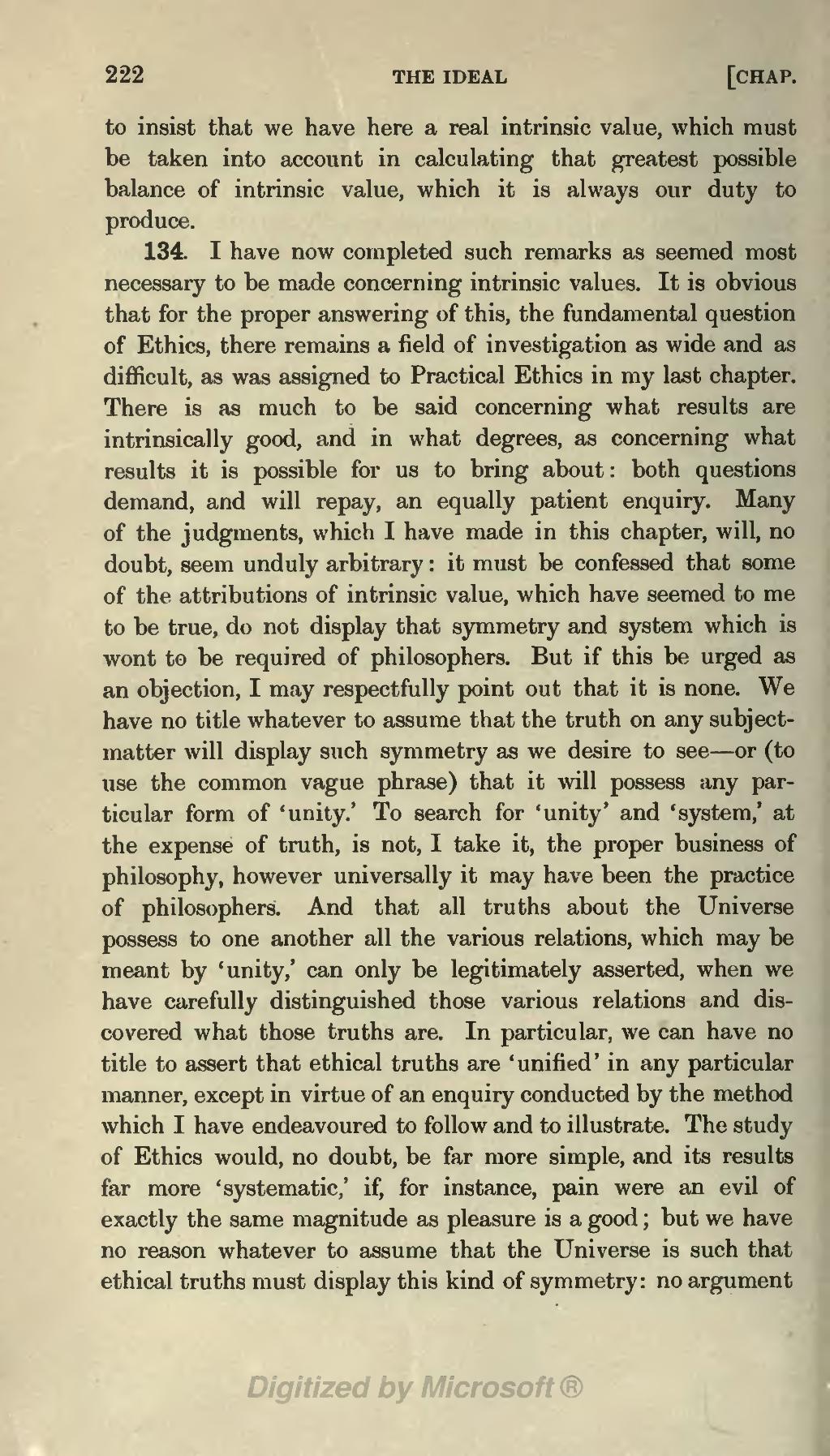to insist that we have here a real intrinsic value, which must be taken into account in calculating the greatest possible balance of intrinsic value, which it is always our duty to produce.
134. I have now completed such remarks as seemed most necessary to be made concerning intrinsic values. It is obvious that for the proper answering of this, the fundamental question of Ethics, there remains a field of investigation as wide and as difficult, as was assigned to Practical Ethics in my last chapter. There is as much to be said concerning what results are intrinsically good, and in what degrees, as concerning what results it is possible for us to bring about: both questions demand, and will repay, an equally patient enquiry. Many of the judgments, which I have made in this chapter, will, no doubt, seem unduly arbitrary: it must be confessed that some of the attributions of intrinsic value, which have seemed to me to be true, do not display that symmetry and system which is wont to be required of philosophers. But if this be urged as an objection, I may respectfully point out that it is none. We have no title whatever to assume that the truth on any subject-matter will display such symmetry as we desire to see—or (to use the common vague phrase) that it will possess any particular form of ‘unity.’ To search for ‘unity’ and ‘system,’ at the expense of truth, is not, I take it, the proper business of philosophy, however universally it may have been the practice of philosophers. And that all truths about the Universe possess to one another all the various relations, which may be meant by ‘unity,’ can only be legitimately asserted, when we have carefully distinguished those various relations and discovered what those truths are. In particular, we can have no title to assert that ethical truths are ‘unified’ in any particular manner, except in virtue of an enquiry conducted by the method which I have endeavoured to follow and to illustrate. The study of Ethics would, no doubt, be far more simple, and its results far more ‘systematic,’ if, for instance, pain were an evil of exactly the same magnitude as pleasure is a good; but we have no reason whatever to assume that the Universe is such that ethical truths must display this kind of symmetry: no argument
